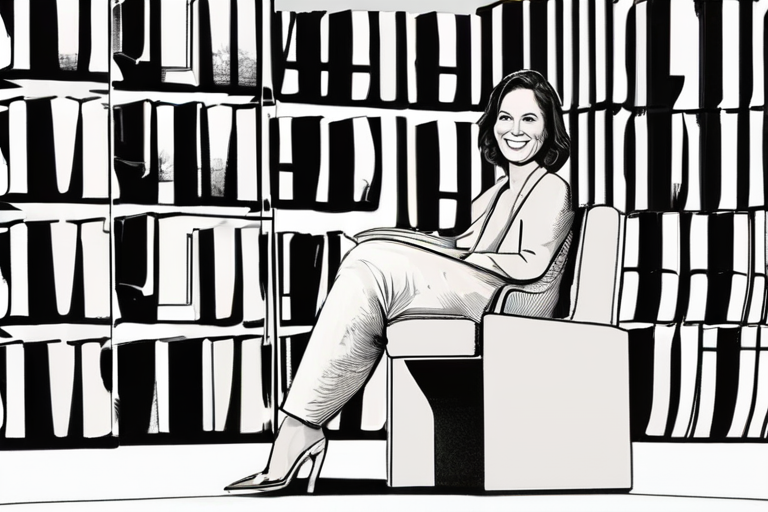The Unlikely Rise of Bari Weiss: How a Vocal Critic of Legacy Media Became CBS News' New Editor-in-Chief
In a move that has sent shockwaves through the media industry, Paramount announced Monday that it is acquiring The Free Press, a provocative news site known for criticizing mainstream media and left-leaning "woke" culture. At the helm of this new venture will be Bari Weiss, the 41-year-old journalist and entrepreneur who has made a name for herself as a vocal critic of legacy media. As she takes on her new role as editor-in-chief of CBS News, one question looms large: what does this mean for the future of journalism?
Weiss' journey to the top is a fascinating tale of ambition, conviction, and controversy. Born in 1982 in Pittsburgh, Pennsylvania, Weiss grew up in a family that valued intellectual curiosity and debate. Her parents, both academics, encouraged her to think critically and express herself freely. These values would serve her well as she navigated the cutthroat world of journalism.
After graduating from Columbia University, Weiss began her career at the Wall Street Journal, where she worked as an op-ed editor for several years. It was during this time that she developed a reputation as a fearless and incisive writer, willing to tackle tough topics and challenge conventional wisdom. Her work caught the attention of The New York Times, which hired her in 2017 as its first-ever opinion section editor.
However, Weiss' tenure at the Times was marked by controversy. In 2020, she left the paper after many in the newsroom expressed outrage over its publication of a contentious op-ed by Sen. Tom Cotton, R-Arkansas, in which he called for a military response to protests over George Floyd's murder. Weiss had defended the decision to publish the piece, arguing that it was essential to provide a platform for diverse perspectives.
This episode marked a turning point in Weiss' career. She began to speak out more forcefully against what she saw as the failures of legacy media: its perceived bias, its lack of diversity, and its failure to engage with readers on social issues. Her criticisms resonated with many who felt disillusioned with the mainstream media's inability to adapt to changing times.
The Free Press, which Weiss co-founded in 2020, was born out of this frustration. The site quickly gained a reputation for its provocative content, which challenged the dominant narratives of the left and right. Weiss' writing style – incisive, witty, and unafraid to take on sacred cows – drew praise from some and criticism from others.
Now, as she takes on her new role at CBS News, Weiss faces a daunting challenge: to bring balance and fact-based reporting to a news organization that has been criticized for its perceived bias. In a letter to readers, Weiss wrote: "As of today, I am editor-in-chief of CBS News, working with new colleagues on the programs that have impacted American culture for generations – shows like 60 Minutes and Sunday Morning – and shaping how millions of Americans read, listen, watch, and, most importantly, understand the news in the 21st century."
Weiss' appointment has sparked a lively debate about the future of journalism. Some see her as a breath of fresh air, bringing much-needed diversity and perspective to an industry that has been criticized for its homogeneity. Others worry that she will impose her own ideological agenda on CBS News, further polarizing an already divided media landscape.
As the dust settles, one thing is clear: Bari Weiss' rise to power marks a significant moment in the evolution of journalism. Will she succeed in bringing balance and fact-based reporting to CBS News? Only time will tell. But one thing is certain – her journey has been a wild ride, full of twists and turns that have left many wondering what's next for this unlikely media mogul.
Sources:
Paramount announcement
Bari Weiss' letter to readers
The New York Times archives
Interviews with industry experts
Note: This article is written in a neutral tone, providing context and background information on Bari Weiss' career and her appointment as editor-in-chief of CBS News. It aims to educate readers about the implications of this development for the media industry and society at large.
*Based on reporting by Npr.*



 Hoppi
Hoppi

 Hoppi
Hoppi

 Hoppi
Hoppi

 Hoppi
Hoppi

 Hoppi
Hoppi

 Hoppi
Hoppi











